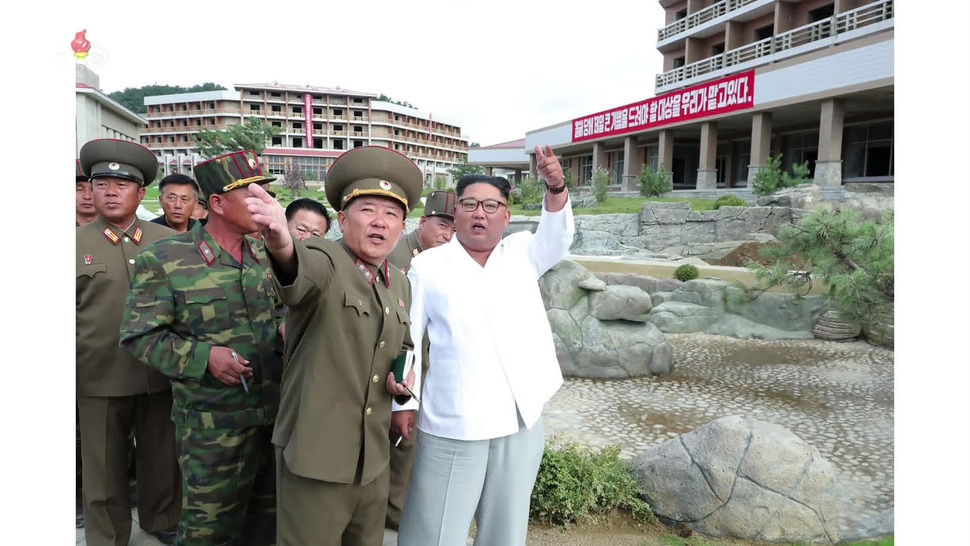 |
|
North Korean leader Kim Jong-un (right) inspects a construction site in Yangdok County, South Pyongan Province, on Aug. 31. (Yonhap News)
|
Vice Foreign Minister Choe Son-hui responds to comments by Pompeo
In response to remarks made by the US’ top diplomat, North Korea said its expectations for bilateral dialogue are “gradually disappearing.” The remarks suggest that the two countries are still having trouble reaching an understanding about their working-level negotiations. In a statement released under her own name on Aug. 31, North Korean First Vice Foreign Minister Choe Son-hui criticized remarks made by US Secretary of State Mike Pompeo at a convention of the American Legion on Aug. 27. “We recognized that North Korea’s rogue behavior could not be ignored,” Pompeo said during his speech. “Pompeo has gone so far in his language and it made the opening of the expected DPRK [North Korea]-US working-level negotiations more difficult,” Choe said. “Our expectations of dialogue with the US are gradually disappearing and we are being pushed to reexamine all the measures we have taken so far.” Choe’s remark about “all the measures we have taken so far” appears to be a reference to the measures that North Korea has adopted over the course of its denuclearization talks with the US, which began last year. North Korea has announced the suspension of additional nuclear tests and ICBM test launches as well as the closure of its nuclear test site at Punggye Village and its missile engine testing grounds at Tongchang Village. North Korean Foreign Minister Ri Yong-ho has been expected to attend the United Nations’ 74th General Assembly, which will be held in New York at the end of this month, but he’s apparently leaning toward not going. Diplomatic sources say that North Korea has indicated an ambassador will be delivering its keynote address at the assembly instead of Ri. That basically dashes hopes that Pompeo and Ri would hold high-level talks during the assembly. North Korea leaders want the nuclear issue to be discussed during a summit between its leader Kim Jong-un and US President Donald Trump, and they’re not very fond of Pompeo, who has taken a hardline stance on the issue of sanctions. Choe’s statement was released just eight days after an Aug. 23 statement by Ri that responded to Pompeo’s remarks about “tough sanctions on North Korea” by calling him a “poisonous plant” of American diplomacy. On Aug. 30, amid the delay in working-level negotiations between the two sides, the US Department of the Treasury slapped sanctions on three shipping companies in Taiwan and Hong Kong and two Taiwanese individuals who are implicated in illegal ship-to-ship transfers with North Korea. The US Treasury explained that the move was part of efforts to implement the existing sanctions regime.
 |
|
North Korean First Vice Foreign Minister Choe Son-hui (center) holds a press conference in Pyongyang on Mar. 15. (AP/Yonhap News)
|







